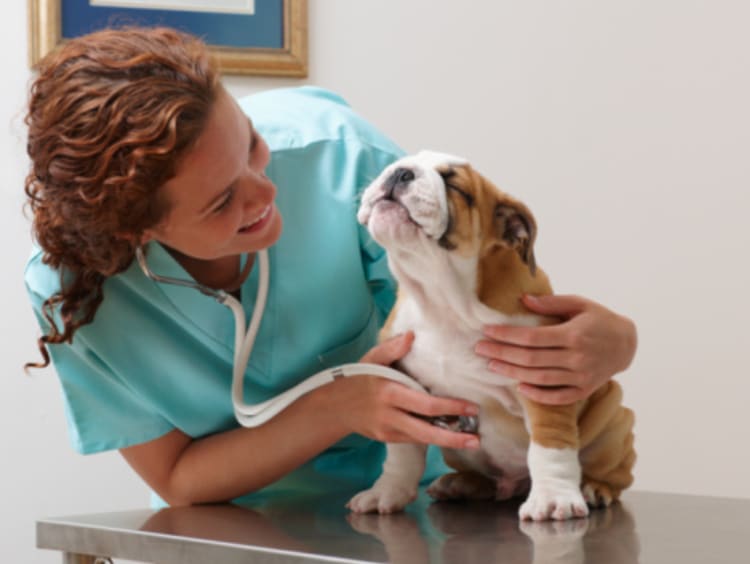Keep Your Pet Safe with Routine Pet Vaccinations from a Relied On Veterinarian
Wiki Article
Vaccination Standards From Your Relied On Veterinarian
Inoculation guidelines given by your relied on veterinarian play a critical role in securing your pet's health and wellness and health. Additionally, dealing with typical misunderstandings surrounding vaccinations can better improve pet owners' confidence in these precautionary actions.
Relevance of Inoculations
Vaccinations play an essential role in guarding family pets versus a variety of avoidable diseases. By boosting the immune system to identify and fight certain virus, vaccinations significantly lower the occurrence of infectious conditions that can affect a pet dog's health and wellness and durability. Not just do vaccinations secure specific animals, however they additionally contribute to herd resistance, therefore minimizing the total prevalence of diseases in the animal populace.Prompt inoculations aid to mitigate the spread of illness such as rabies, parvovirus, and distemper, which can have extreme effects for both people and family pets. Vaccinations are typically a demand for boarding facilities, grooming services, and canine parks, making them necessary for those that want to socialize their pets.

Core Vaccinations for Animals
While the certain vaccination demands of pets can differ based on private elements, core vaccinations are generally recommended to safeguard versus one of the most typical and severe conditions (Emergency Vet). Core injections are those considered essential for all family pets, no matter their lifestyle or geographic location, as they guard versus possibly deadly and very infectious health problemsFor dogs, the core vaccinations consist of those for canine distemper, parvovirus, adenovirus (hepatitis), and rabies. Adenovirus can result in liver illness, while rabies is a zoonotic illness that positions a danger to both humans and pet dogs.
In felines, core injections encompass feline panleukopenia, feline calicivirus, feline herpesvirus (rhinotracheitis), and rabies. Feline panleukopenia is an extremely infectious viral illness that affects the body immune system and intestines. Calicivirus and herpesvirus are significant factors to upper breathing infections in cats, while rabies continues to be a crucial issue for public health and wellness.
Talk to your veterinarian to guarantee your family pets get their core inoculations on routine.
Non-Core Vaccines Explained
Non-core vaccinations are tailored to address certain dangers related to a pet dog's lifestyle, atmosphere, and direct exposure to specific illness. Unlike core injections, which are widely recommended for all family pets, non-core vaccinations are thought about based on specific circumstances. These injections are especially essential for pets that might experience unique pathogens because of their geographical location, traveling routines, or activities.Examples of non-core vaccines content consist of those for Bordetella bronchiseptica, which is linked to kennel coughing, and Lyme condition, brought on by ticks. Animals that regularly engage with other pets, such as those in boarding centers, canine parks, or brushing settings, might take advantage of Bordetella vaccination. If you live in an area where Lyme disease is widespread, vaccinating versus this condition can be a prudent option for outdoor-loving pet dogs.
Other non-core vaccinations might include those for leptospirosis, canine flu, and feline leukemia, relying on the details risk variables present. It is essential to have an extensive discussion with your veterinarian regarding your pet dog's way of living and the prospective demand for these injections, making sure a tailored inoculation method that ideal protects your furry good friend.
Inoculation Schedule Introduction

As animals grow, it is necessary to stick to the advised booster vaccinations. Pet Health Checkup. For adult animals, core injections are generally provided each to 3 years, depending on the particular vaccine and local policies. Non-core injections might be advised based upon read what he said way of living variables and local condition prevalence, demanding a customized strategy
Regular veterinary exams are crucial for upgrading inoculation timetables. Your veterinarian can supply support on one of the most proper booster shots for your pet dog, factoring in age, health status, and ecological dangers. By remaining aggressive and educated, family pet proprietors can guarantee their hairy friends obtain efficient and prompt inoculations, consequently guarding their wellness and well-being throughout their lives.
Typical Myths Concerning Injections
Mistaken beliefs concerning pet dog inoculations can result in confusion and reluctance amongst pet owners relating to the immunization process. One prevalent myth is that vaccines are unneeded for interior animals. While it's true that interior family pets deal with lower threats, they are not totally unsusceptible to illness, as pathogens can be presented with numerous methods, consisting of human clothes and various other family pets.Another misconception is that vaccines can trigger the illness they aim to stop. In fact, many vaccinations include inactivated or undermined virus, which can not cause illness in healthy and balanced animals. Some pet dog owners additionally believe that their pets must not be vaccinated if they are currently healthy and balanced; nevertheless, inoculations are a proactive step that helps stop the onset of health problem.
Furthermore, several pet owners fear that vaccinations will certainly lead to lasting wellness complications. The benefits of vaccination-- safeguarding family pets from possibly serious conditions-- far outweigh the threats.
Verdict
In recap, adherence to vaccination standards is crucial for ensuring the wellness and long life of family pets. Dispelling usual myths bordering vaccinations even more enhances the significance of educated decision-making in animal care.Not just do vaccinations shield individual pets, yet they additionally contribute to herd immunity, therefore decreasing the total occurrence of conditions in the family pet population.
Misconceptions concerning animal inoculations can lead to complication and unwillingness amongst family pet owners pertaining to the immunization process. While it's true that indoor pet dogs face lower threats, they are not entirely immune to conditions, as pathogens can be presented through numerous means, including human apparel and various other pet dogs.
Some pet proprietors additionally think that their family pets ought to not be vaccinated if they are currently healthy and balanced; nonetheless, vaccinations are a proactive procedure that assists protect against the onset of disease.
The advantages of inoculation-- protecting animals from potentially lethal conditions-- like it much outweigh the threats.
Report this wiki page